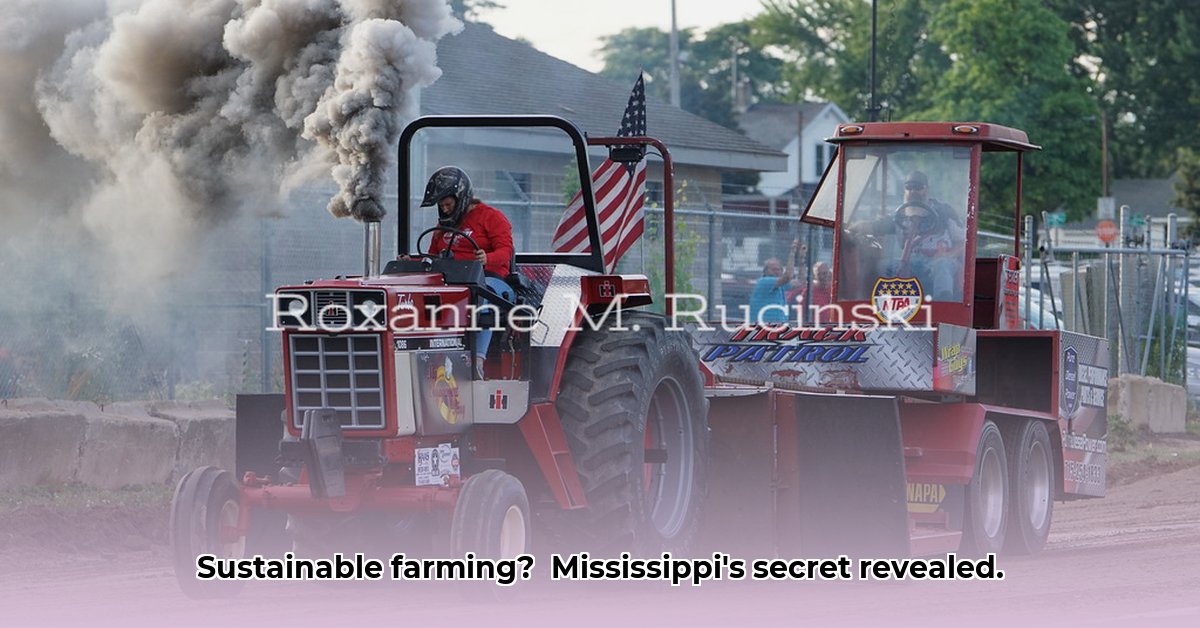
Parish Tractor, located in Meridian, Mississippi, is a prominent supplier of Kubota agricultural equipment, known for its financing options tailored to local farmers. While the company emphasizes community engagement, its commitment to sustainable farming practices requires further examination. This case study analyzes Parish Tractor’s current actions, identifies key stakeholders and their goals, assesses potential risks, and offers actionable recommendations to enhance its sustainability profile. For more on the history of tractors and their impact, see this helpful resource.
A Closer Look at Parish Tractor's Current Practices
Parish Tractor's partnership with Kubota provides farmers access to advanced machinery, potentially boosting fuel efficiency and reducing environmental impact. However, a critical gap exists: a lack of detailed information on Parish Tractor’s own sustainability practices. Transparency regarding carbon footprint, waste management, and ethical sourcing is essential for assessing the validity of their sustainability claims. This lack of readily available information hinders a complete evaluation.
Who's Involved and What Do They Want? A Stakeholder Perspective
Understanding the diverse stakeholders impacted by Parish Tractor’s operations is crucial. Their short-term and long-term goals require careful consideration:
| Stakeholder | Short-Term Goals | Long-Term Goals |
|---|---|---|
| Parish Tractor Meridian Mississippi | Increase transparency; improve sustainability reporting. | Invest in eco-friendly equipment and practices; explore carbon offsetting programs. |
| Farmers | Higher crop yields; lower operating expenses. | Adopt sustainable farming methods for improved profitability and environmental health. |
| Local Communities | Job growth and economic prosperity. | Enhanced food security and overall community well-being. |
| Kubota (the equipment manufacturer) | Increased market share; enhanced brand reputation. | Maintain leadership in sustainable agricultural technology. |
| Investors (those who put money into the business) | Strong return on investment (ROI); positive brand image | Continued investment in sustainable business ventures. |
Potential Problems and How to Deal With Them: A Risk Assessment
Proactive risk management is vital for Parish Tractor's long-term success. Key risks and mitigation strategies are outlined below:
| Risk Category | Likelihood of Occurrence | Severity of Impact | Mitigation Strategy |
|---|---|---|---|
| Insufficient Sustainability Data | Moderately High | High | Publish detailed, transparent sustainability reports. Utilize clear, easily understood metrics. |
| Fierce Competition | High | Moderate | Differentiate via strong community engagement; position as a leader in sustainable practices. |
| Fluctuations in Fuel Prices | High | High | Encourage fuel-efficient equipment; explore alternative fuel sources like biodiesel. |
| Changing Environmental Laws | Moderate | Moderate | Actively monitor and comply with all relevant environmental regulations; anticipate future changes. |
Recommendations for a Greener Future: Moving Forward
Parish Tractor has a significant opportunity to become a leader in sustainable agriculture. To achieve this, several key actions are recommended:
Complete Transparency: Publish comprehensive sustainability reports detailing energy usage, waste reduction, and responsible sourcing. Quantitative data is crucial.
Investment in Eco-Friendly Technology: Commit to R&D of eco-friendly technologies, such as exploring alternative energy sources for farm equipment.
Enhanced Community Engagement: Partner with local farmers and community organizations to promote sustainable farming practices through workshops and educational resources.
Supply Chain Responsibility: Evaluate the entire supply chain to identify areas for improvement in ethical sourcing and minimizing environmental impact.
By embracing these recommendations, Parish Tractor can strengthen its reputation, enhance its positive community impact, and solidify its position as a leader in environmentally responsible agriculture. The transition to sustainability isn't just an environmental imperative; it's a sound business strategy that will yield long-term benefits.